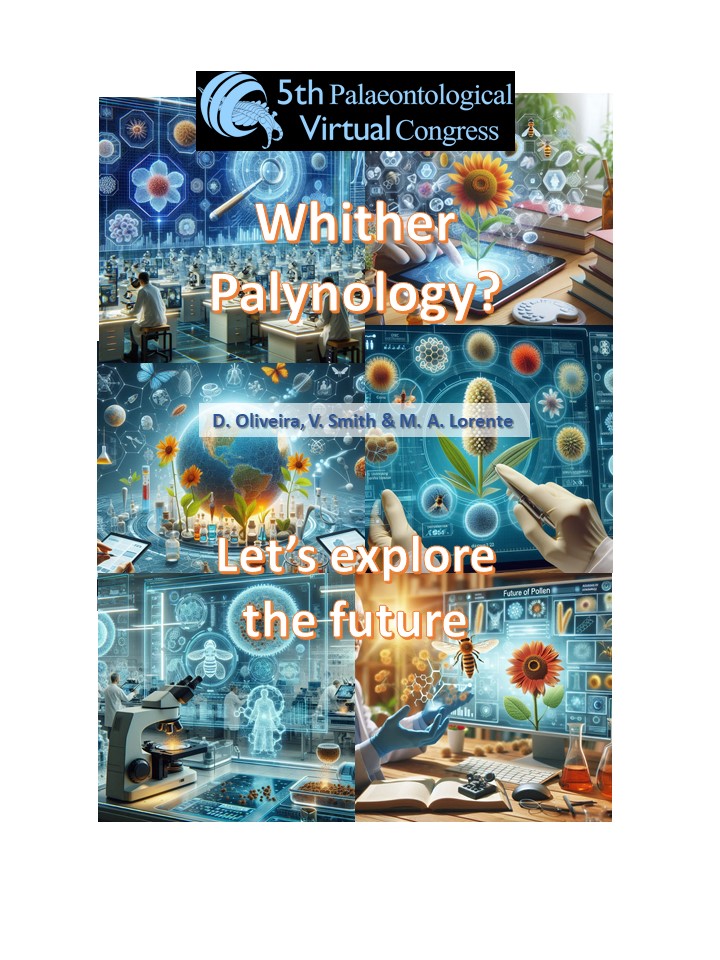Whither Palynology? Advances and Perspectives on Interdisciplinary Applications and Methodologies

AUTHORS
Dulce Oliveira
Centro de Ciências do Mar do Algarve (CCMAR), Universidade do Algarve, Portugal
Instituto Português do Mar e da Atmosfera (IPMA), Algés, Portugal
Maria Antonieta Lorente
Universidad Central de Venezuela, Facultad Ingeniería, Escuela de Geología, Minas y Geofísica, Venezuela.
Ellington Geological Services LLC, Houston, Texas, USA
lorente.maria.antonieta@gmail.com
Vann Smith
Ellington Geological Services LLC, Houston, Texas, USA
Abstract
With the advance of technology, paleontology in general, and palynology in particular, have witnessed rapid progress in exploring high-impact topics for modern society. This session aims to assess the progress of current research and highlight the rapidly growing role of palynology.
Palynology, through the analysis of organic microfossils such as pollen and spores, microcharcoal, phytoliths, dinoflagellate cysts, and NPPs, offers essential insights into stratigraphy, vegetation, fire dynamics, and paleoenvironmental and climate reconstructions throughout Earth’s history. Besides these topics, participants are highly encouraged to present studies exploring methodological advances and case studies addressing the relationship between pollen production and forest composition, which allow the quantification and prediction of (palynological) particulate organic matter dispersal in fossil and recent source-to-sink systems. Contributions exploring high-resolution imaging, automated data extraction, and interdisciplinary applications—extending to fields like archaeology, health sciences, and the food industry—are also particularly welcome.
Overall, this session seeks to highlight the advancements of palynology and its interdisciplinary applications, promoting connections among researchers and students worldwide.
